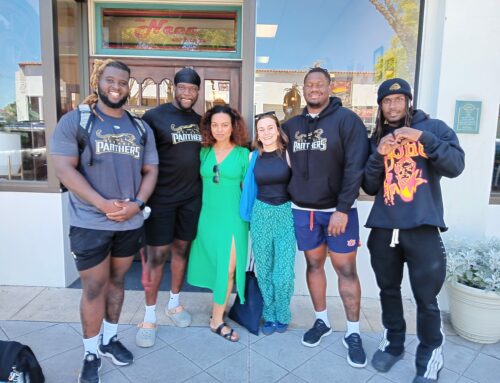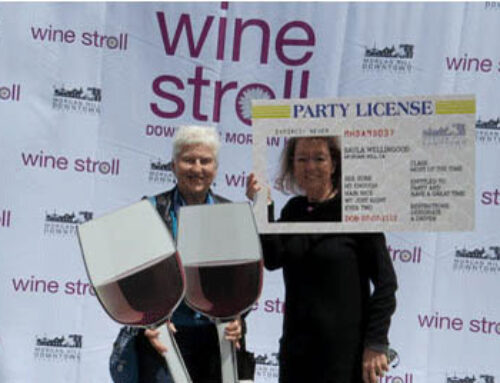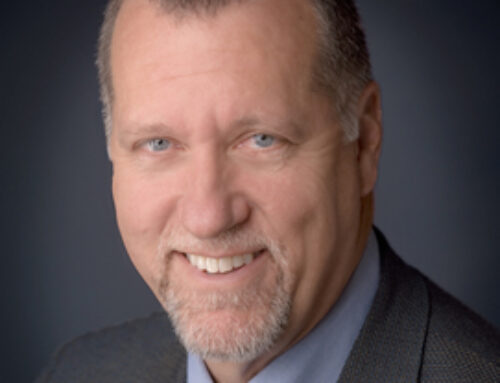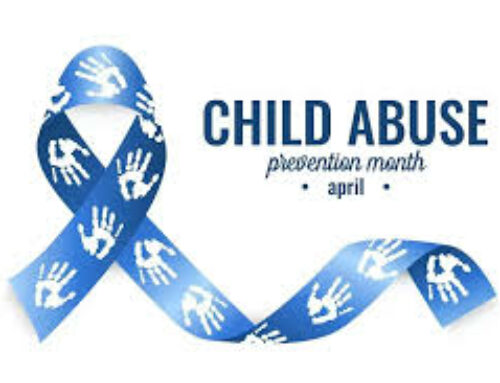Published in the Jan. 21 – Feb. 3, 2015 issue of Morgan Hill Life

Photo by Marty Cheek
Ultrasound technician Marc Quarles opposes the sale of Saint Louise Regional Hospital to Prime Healthcare.
For a quarter of a century, Saint Louise Regional Hospital has operated in South County, the only hospital with emergency room services within 20 miles. First based in Morgan Hill, it moved to Gilroy in 1999. Staff at the hospital delivered 555 babies and saw more than 27,000 emergency room patients in 2013.
The Daughters of Charity is selling Saint Louise and its five sister hospitals, including O’Connor Hospital in San Jose. The DOC is losing an estimated $10 million a month and can no longer financially continue to run the hospitals. Four firms made offers to buy the facilities. Only one of the deals, the one with Prime Healthcare Services Inc., is worth the risk.
Yes, risk.
Prime Healthcare has promised to continue to run the hospital and all other DOC facilities as acute care hospitals, retain services at all health facilities, commit $150 million in capital improvement, assume all debts and pay off nearly $750 million in tax-exempt bonds, fully fund all pension plans and retain the collective bargaining agreements at each facility. Only Prime could promise to run the hospitals as the DOC requested.
But, as we said, there are risks in the deal. Prime is under investigation by the Justice Department for allegedly over billing Medicare as well as violations of patient confidentiality. (Prime officials said they expect federal investigators will conclude that “our hospitals follow all state and federal regulations and laws.”)
California Attorney General Kamala Harris needs to approve the Prime deal with DOC. If she does, Prime will become, based on revenue, the fifth largest hospital company in the United States.
Harris has previously approved two hospital purchases by Prime and has also rejected two others, including an attempt to buy Victor Valley Community Hospital in Victorville. In rejecting that takeover, Harris noted that Prime has a “disturbing business model” and that the deal was “not in the public interest.”
Throughout a nearly five-hour Jan. 8 hearing at a packed Gilroy City Hall, many people spoke about what might happen if the DOC hospitals are sold to Prime Healthcare. The company might reduce staff, might reduce or cut unprofitable services, might not negotiate labor contracts in good faith and might not sustain the level of commitment, funding or provider network needed to support the community’s needs.
Those are all what might happen.
What will happen if the hospitals are not sold? They will go bankrupt, likely shutting their doors. If Saint Louise closes, more than 100,000 Morgan Hill, Gilroy and San Martin residents will be without local medical care. The closest facility is Hazel Hawkins Memorial Hospital in Hollister.
According to Sunitha Reddy, a vice president of Prime Healthcare, the firm is committed to improving its hospitals by investing in capital improvements and state-of-the-art technology. Since 2005, it invested nearly $800 million in improvements. Since 2010, it provided more than $2 billion in charity care. That is nearly twice the California state average and more than any other hospital system in California.
“Prime Healthcare has been chosen by the Daughters of Charity as the best and only option to save their hospitals and continue their legacy,” Reddy said during the Jan. 8 meeting.
All that sounds good, but it still leaves us with concerns.
The SEIU-United Healthcare Workers West union leadership is vocally opposed to the sale, although not all its members were in agreement, evidenced by the several who spoke in support of the sale.
Marc Quarles, a Saint Louise ultrasound technician who has worked there for 14 years, said he’s against the sale because of Prime’s history of doing the opposite of what it promises. He insisted Blue Wolf Capital, a Wall Street investment firm, is the better option, although the DOC board unanimously disagreed, selecting Prime.
“(Prime has) a documented history of consistently canceling insurance contracts, cutting services, raising the price of the services that remain and laying off workers. That would not be good for the community,” he said.
Sandra Soto, Congresswoman Zoe Lofgren’s district chief of staff, submitted a letter at the Gilroy meeting describing the representative’s opposition to the Prime deal along with about a dozen other Democratic representatives.
In counter to the SEIU-UHW, Prime’s offer has the support of the California Nurses Association, a labor union that represents 1,800 DOC nurses.
One way to perhaps mitigate any potential breaking of promises by Prime would be to create a citizens oversight committee. While that committee would likely have no real teeth to punish Prime for faulting on its agreements, it could keep an eye on Prime, reporting to the state attorney general if things begin to go astray.
The situation leaves us between choosing between what might happen and what will almost certainly happen if the Prime deal is not approved by Harris — the closure of Saint Louise as a medical care center for South Valley residents.
Dr. Scott Benninghoven, who has worked as a surgeon for 24 years and is on the hospital’s board of trustees, said he was impressed with the intensive process of selecting Prime.
“Only Prime Healthcare has met all the requirements set forth by the DOC,” he said. “A hospital is not a building, it’s a medical community.”
And that community must ultimately remain open for the public good.
After announcing her candidacy earlier this month, Harris stands at the head of the line for the 2016 U.S. Senate race to replace Barbara Boxer.
We hope that Harris disregards any politics to sway labor union favor and makes the best decision for the hospitals, patients and communities.
If the Prime Healthcare takeover is approved by the state attorney general, we hope it will continue the proud legacy of the Daughters of Charity by providing high quality medical care for the people of the South Valley region.






